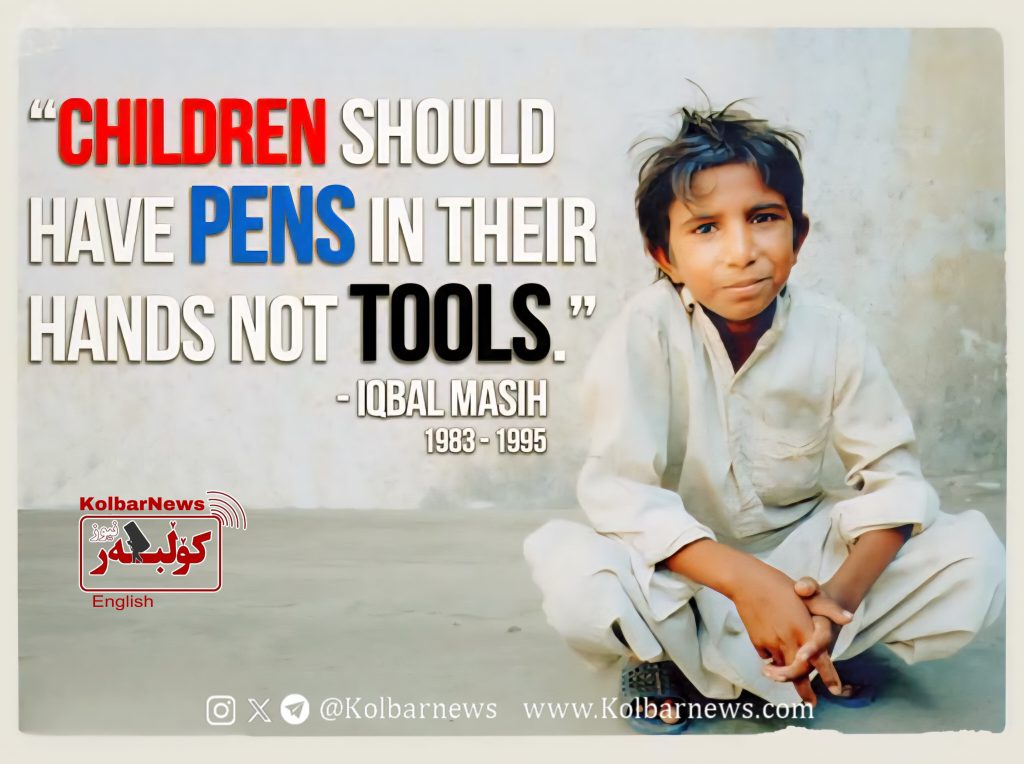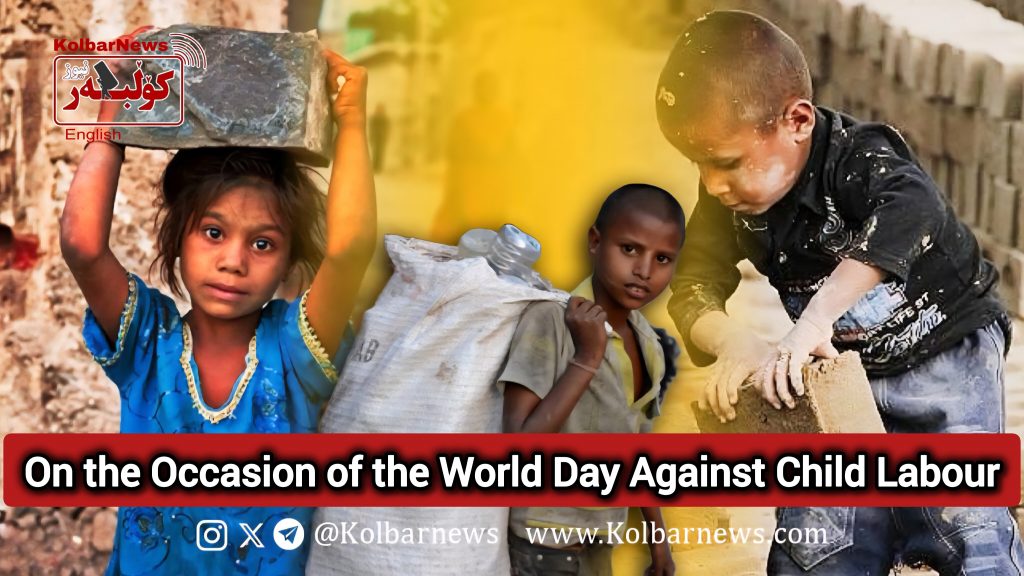Iqbal Masih (often referred to as Spartacus by many) was the youngest labor activist in the world who became a hero at the age of 12. His famous quote is: “I no longer fear the masters, now they must fear me.”

Who is a hero and what is heroism? Some people believe that a hero is someone who fights against evil and injustice. Others say a hero is someone who supports and defends the weak. Some see a hero as someone who puts their own life at risk to protect the lives of others. Iqbal Masih encompassed all these forms of heroism. He embodied all possible notions of a hero, even though he was only 12 years old.
Iqbal was born in a village in Pakistan. After his birth, his father abandoned the family. Iqbal’s mother worked in other people’s homes to support them, but her income was meager. She couldn’t take care of Iqbal and his siblings properly. At the age of four, Iqbal was sold to a carpet factory owner for $12. In Pakistan, many carpets are woven by child laborers like Iqbal. These children have no #freedom and are enslaved by the factory owners. They work long hours in terrible conditions. Iqbal worked six days a week and 12 hours a day. He couldn’t do the things that normal children did. He couldn’t go to school or play with his friends. The carpet factory had strict rules. If he broke any rule, he would be physically punished. If he spoke to other children during work, he would be beaten. Even if he got sick, he would still be punished. There was no place for children like him.
Working in the carpet factory was physically demanding for Iqbal. He couldn’t sit down and had to squat all day while weaving carpets. This took a toll on his back, and he had difficulty walking. Iqbal didn’t even have enough food to eat. His body never fully developed, and at the age of 12, he had the stature of a 6-year-old boy. His respiratory problems worsened because the children couldn’t open the windows and breathe fresh air. The air was hot, but the factory owner kept the windows closed. He didn’t care about the children’s health; he only cared about protecting and preserving his carpets.
One day, Iqbal decided to escape. He ran away and sought refuge with the police. He reported the situation in the carpet factory to the police, including the terrible working conditions and the children who worked there. Iqbal thought the police would help him, but he was mistaken. The police were friends with the factory owner. They returned Iqbal to the factory and asked the owner to lock him up.
Iqbal didn’t trust the police, but he didn’t give up. One day, he heard about a meeting of the Bonded Labour Liberation Front (BLLF) in Pakistan, an organization that helps child laborers. Iqbal escaped again with the intention of attending that meeting. The head of BLLF was a lawyer who helped Iqbal obtain a legal order for his freedom. Iqbal was only ten years old, but he had spent more than half of his life as a captive in the carpet factory.
Iqbal didn’t seek freedom only for himself. He advocated for the freedom of all the child laborers in the carpet factory. He started speaking at BLLF meetings, despite being only ten years old. He was a powerful and confident speaker. He shared his experiences with others and inspired thousands of people to seek freedom and justice.
He didn’t just encourage children to seek freedom. Iqbal helped people in other countries learn about the conditions in which Pakistani children wove carpets. This was detrimental to the carpet industry, causing international sales to decline. Many carpet factories suffered significant financial losses. Iqbal and his family received numerous death threats. Despite being a child, Iqbal was incredibly brave.
On the way, he was shot from behind, and his heart full of freedom and hope was the target of more than 120 bullets.
Iqbal Masih; 1995 – 1983

